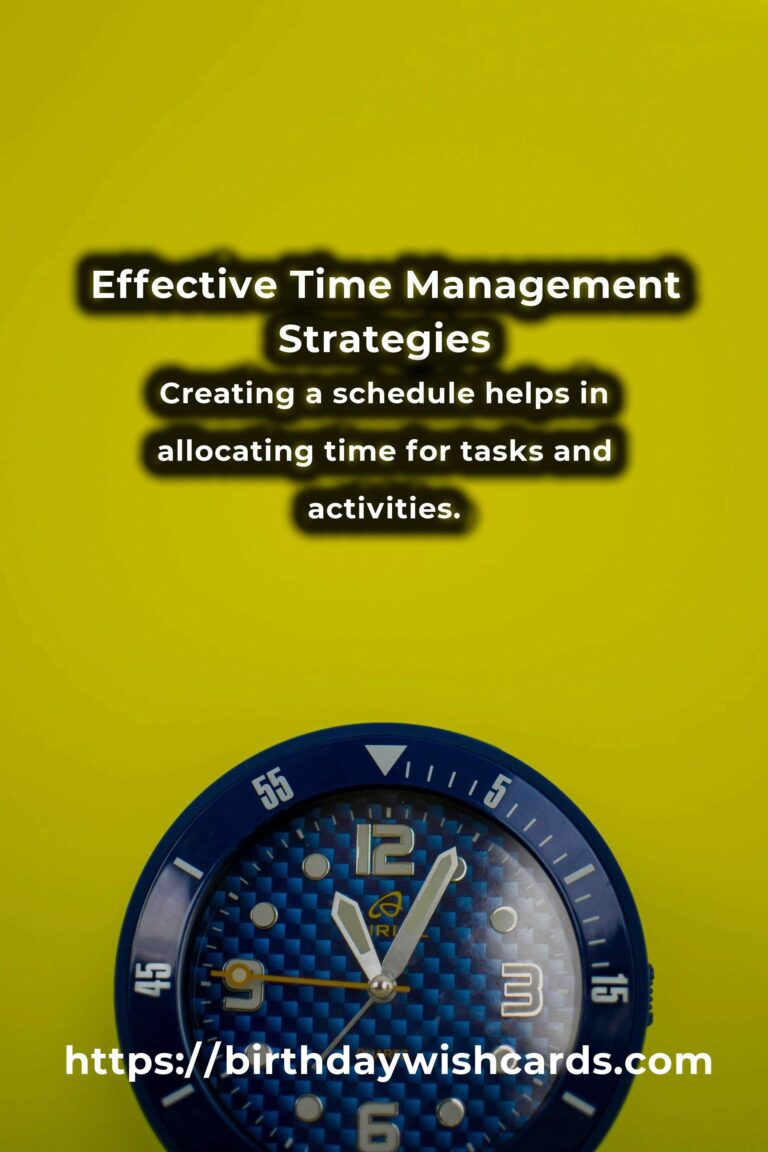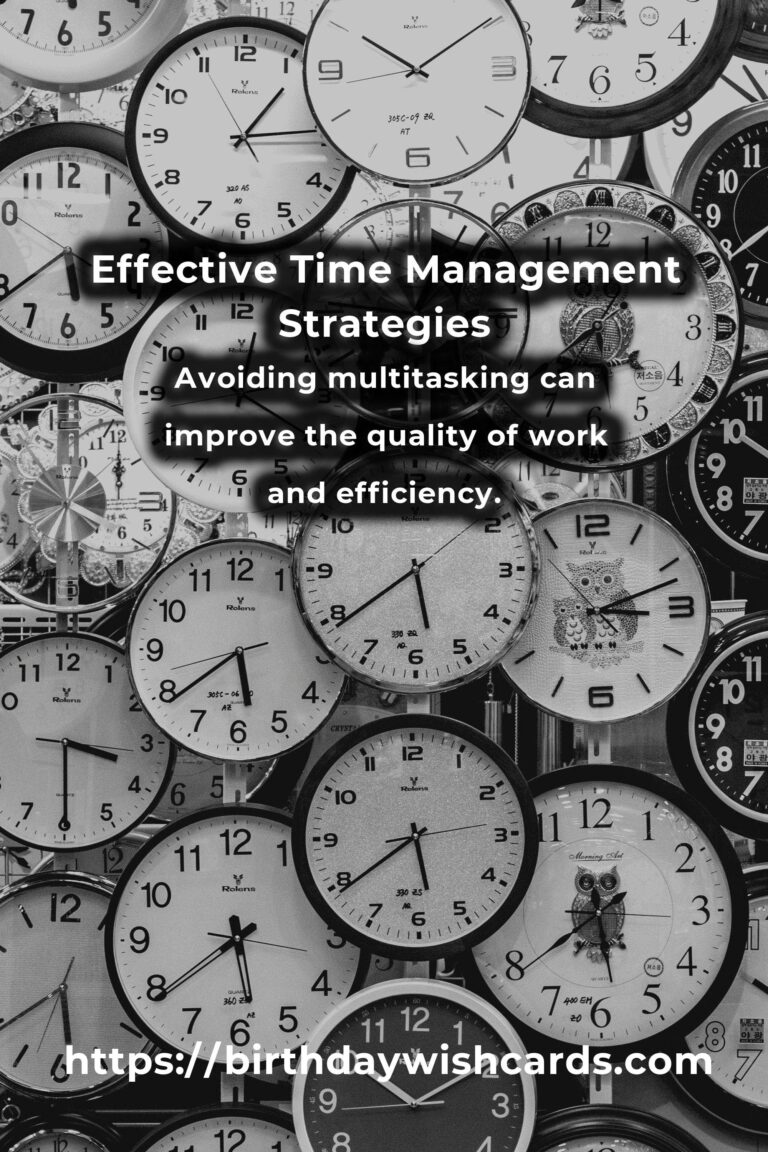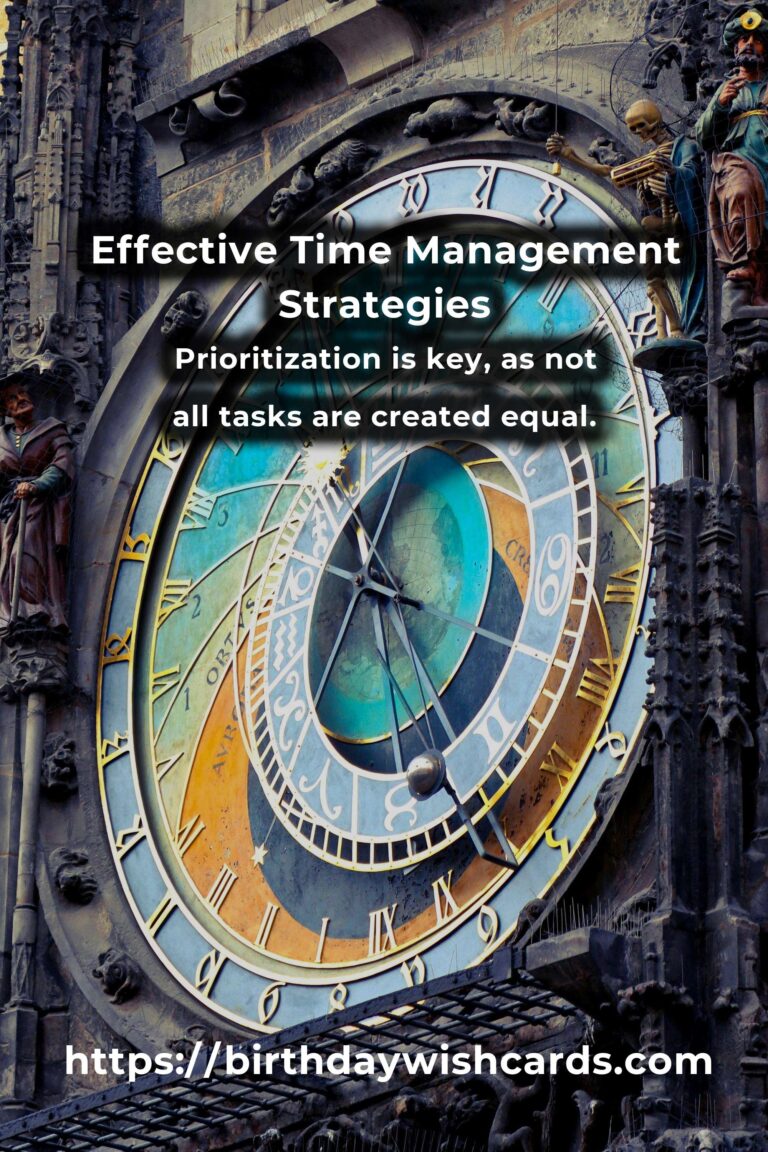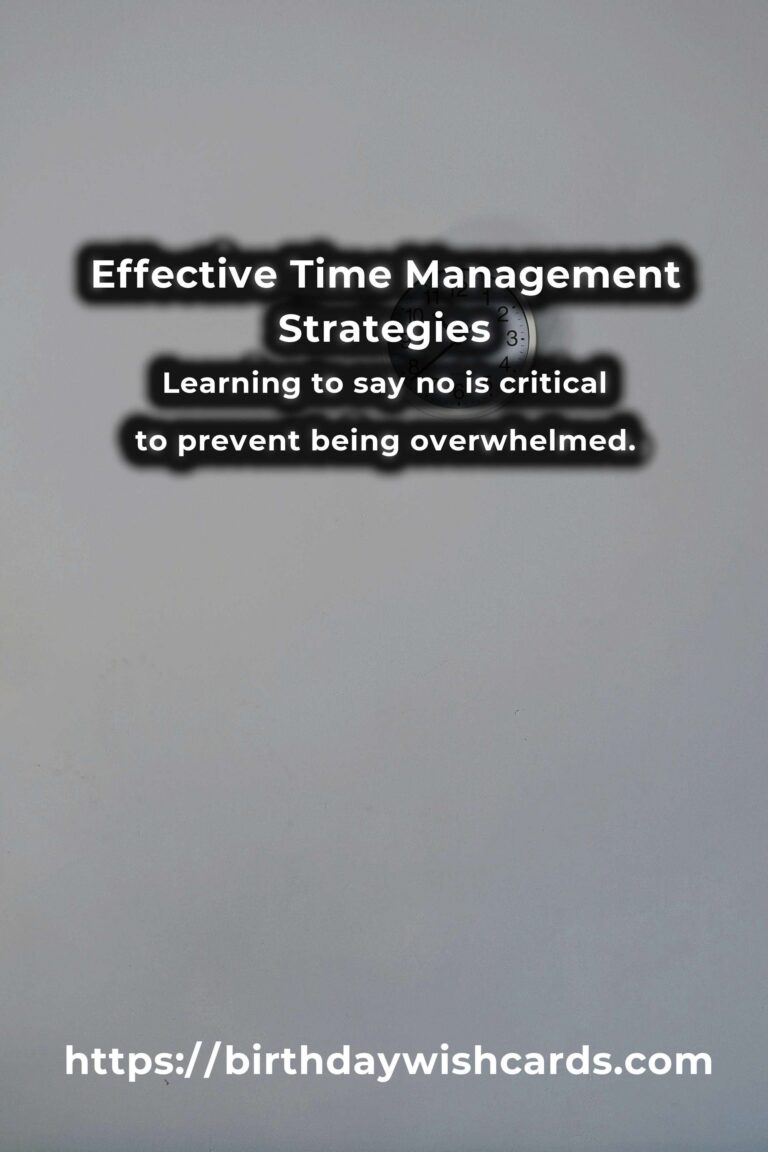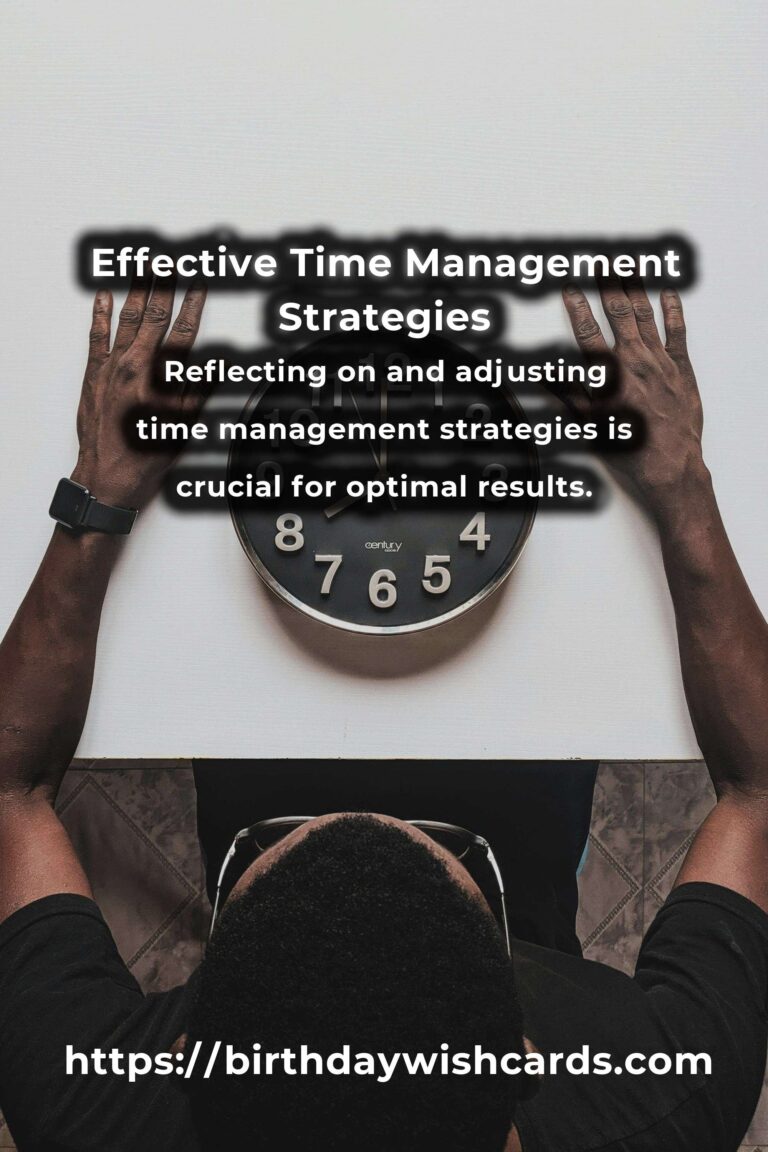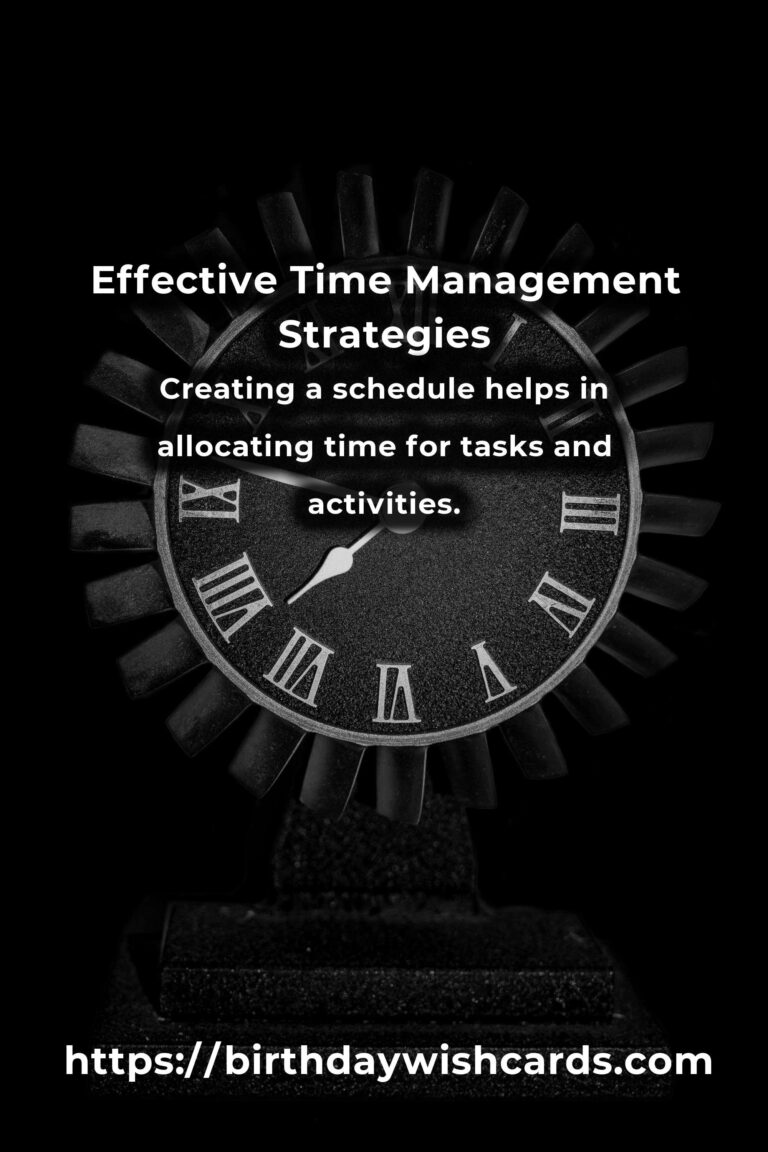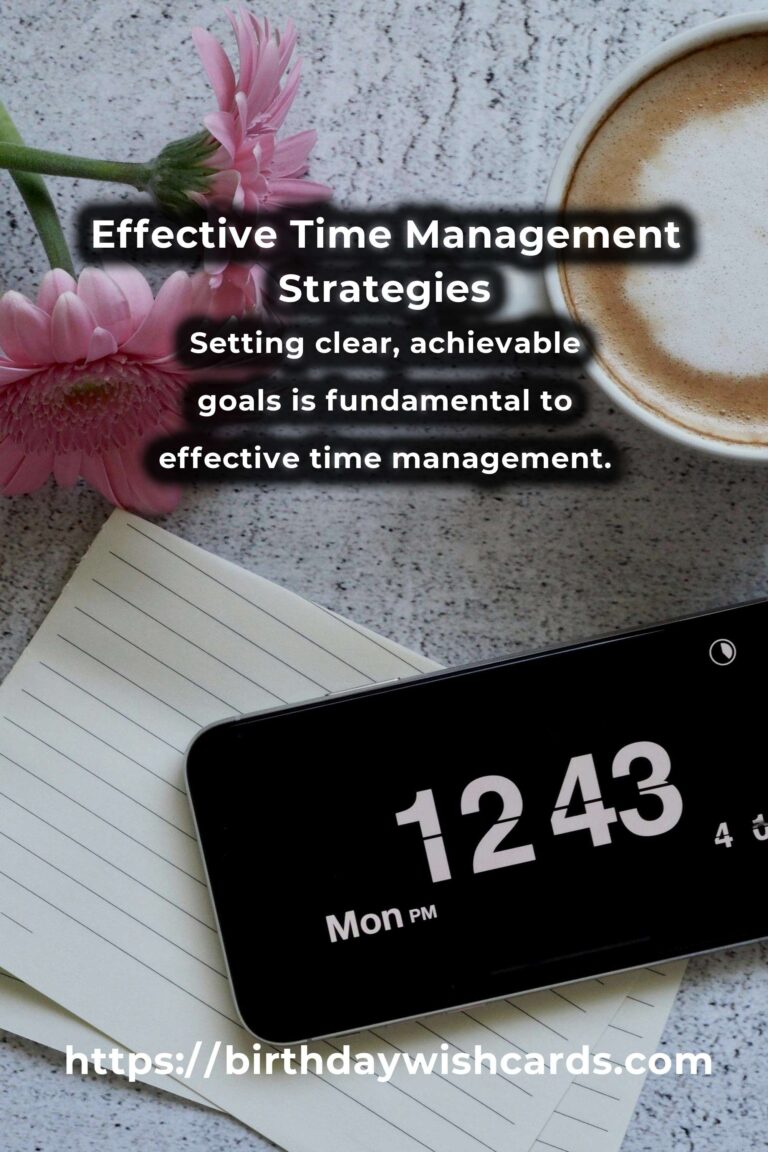
Time management is a crucial skill that impacts personal and professional success. Many people find themselves constantly overwhelmed by their to-do lists, struggling to find the right balance between work, family, and personal time. However, with the right strategies, mastering time management can become an effortless part of your daily routine.
Understanding Time Management
Time management involves planning and exercising conscious control over the amount of time spent on specific activities, especially to increase effectiveness, efficiency, and productivity. This skill is essential for achieving goals and tasks within set deadlines.
Set Clear Goals
One of the fundamental steps in effective time management is setting clear, achievable goals. Without clear objectives, it is easy to become sidetracked or overwhelmed. Goals provide direction and a sense of purpose, helping you prioritize tasks and allocate your time efficiently.
Prioritize Tasks
Once you have set your goals, prioritization becomes key. Not all tasks are created equal, and some will have a more significant impact on achieving your objectives. Use techniques such as the Eisenhower Box, which helps you distinguish between urgent and important tasks, to prioritize effectively.
Create a Schedule
Creating a schedule can help you allocate time for your tasks and ensure that you have enough time for both work and leisure activities. A well-structured schedule reduces stress and increases productivity, allowing you to manage your time better.
Utilize Time Management Tools
In today’s digital age, numerous time management tools are available that can help you stay organized and efficient. Apps like Trello, Asana, and Google Calendar provide platforms for setting reminders, deadlines, and tracking progress.
Learn to Say No
Often, people find themselves overwhelmed because they take on more tasks than they can handle. Learning to say no is a critical aspect of time management. Understand your limits and be willing to decline additional responsibilities that do not align with your priorities.
Avoid Multitasking
While multitasking might seem like a way to accomplish more in less time, it often leads to decreased productivity and increased errors. Focus on completing one task at a time to improve both the quality of your work and your efficiency.
Take Breaks
Taking regular breaks is essential for maintaining productivity. The Pomodoro Technique, which involves working for 25 minutes and then taking a 5-minute break, can help improve focus and prevent burnout.
Reflect and Adjust
Regularly reflecting on your time management strategies and adjusting them as needed is crucial. What works for one person may not work for another, and what worked last month may not be effective today. Continuously assess and refine your approach for optimal results.
Conclusion
Mastering time management is not only about managing your time better but also about managing yourself better. By setting clear goals, prioritizing tasks, creating a schedule, and utilizing the right tools, you can enhance your productivity and achieve a healthier work-life balance.
Time management is a crucial skill that impacts personal and professional success. Setting clear, achievable goals is fundamental to effective time management. Prioritization is key, as not all tasks are created equal. Creating a schedule helps in allocating time for tasks and activities. Utilizing time management tools can aid in staying organized and efficient. Learning to say no is critical to prevent being overwhelmed. Avoiding multitasking can improve the quality of work and efficiency. Taking regular breaks is essential for maintaining productivity. Reflecting on and adjusting time management strategies is crucial for optimal results.
#TimeManagement #Productivity #WorkLifeBalance #Efficiency #GoalSetting


